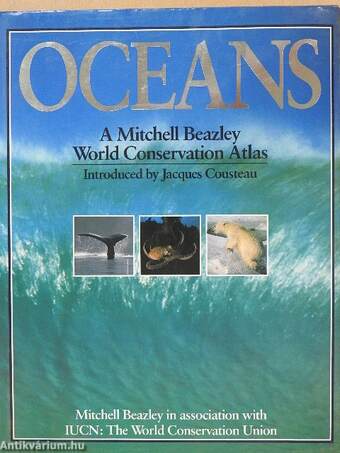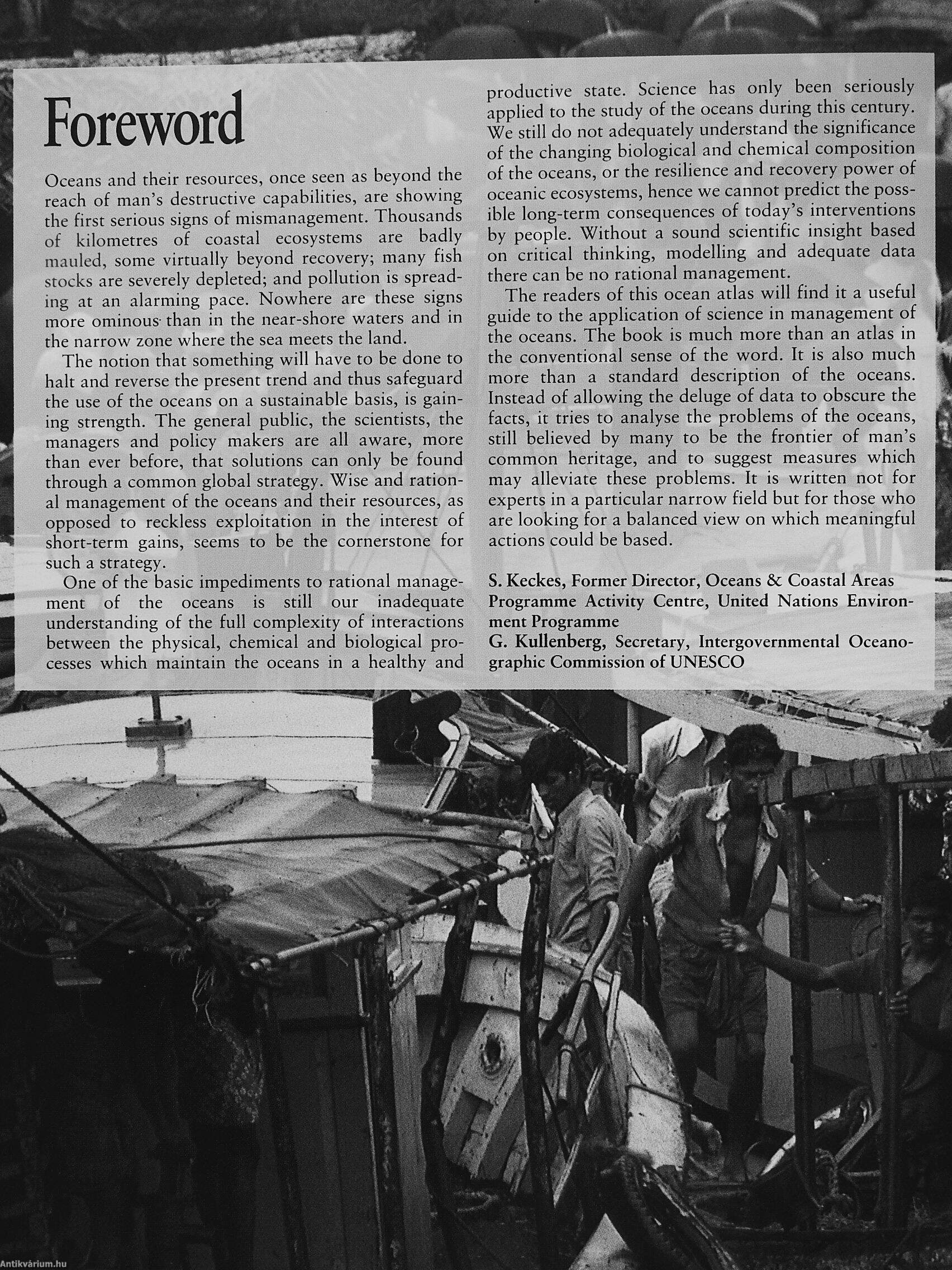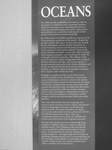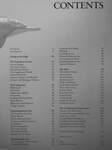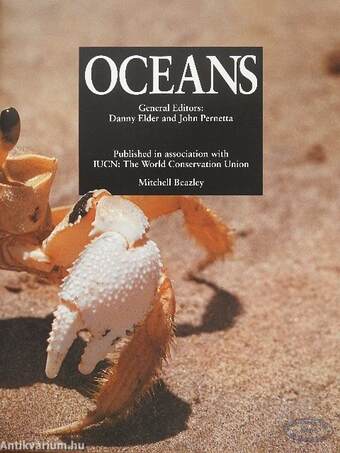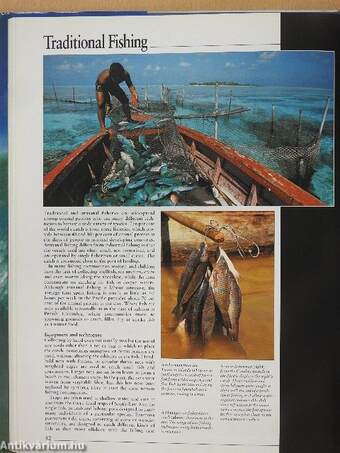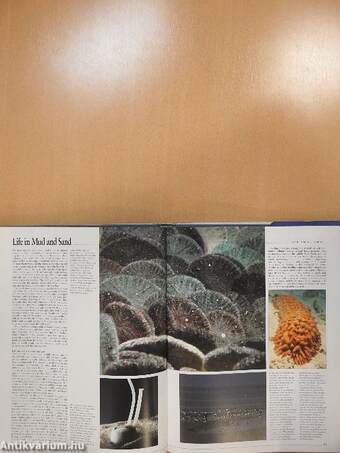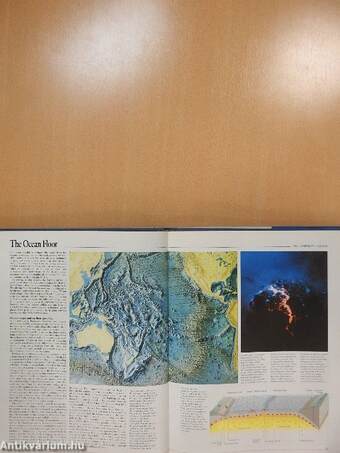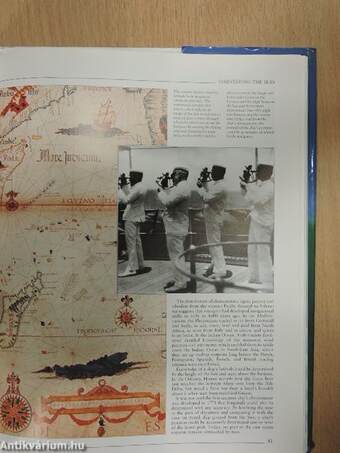1.067.327
kiadvánnyal nyújtjuk Magyarország legnagyobb antikvár könyv-kínálatát

VISSZA
A TETEJÉRE
JAVASLATOKÉszre-
vételek
Oceans
A Mitchell Beazley World Conservation Atlas
| Kiadó: | Mitchell Beazley-IUCN |
|---|---|
| Kiadás helye: | |
| Kiadás éve: | |
| Kötés típusa: | Fűzött kemény papírkötés |
| Oldalszám: | 200 oldal |
| Sorozatcím: | |
| Kötetszám: | |
| Nyelv: | Angol |
| Méret: | 30 cm x 24 cm |
| ISBN: | 0-85533-923-3 |
| Megjegyzés: | Színes és fekete-fehér fotókkal, illusztrációkkal, térképekkel. További kapcsolódó személyek a könyvben. |
naponta értesítjük a beérkező friss
kiadványokról
naponta értesítjük a beérkező friss
kiadványokról
Előszó
TovábbFülszöveg
OCEANS
For millennia the oceans have provided us with an abundance of resources and a seemingly limitless outlet for our waste; now, exploding populations and advanced technologies have led to exploitation and pollution on a scale that is placing the whole marine environment in serious jeopardy.
By 2010 nearly seven billion people are expected to be living along the coastlines of the world - double the present number. But many coastal zones are already heavily developed, and any further expansion of coastal industry, tourism and housing can only be at the expense of vital marine habitats. Some of the richest habitats on Earth - coral reefs, tidal wetlands, and mangrove swamps - are vanishing fast under the onslaught of human activities. The collapse of the natural systems is evident in degraded reefs, polluted beaches and toxic red tides. And several species of marine animals, particularly the whales, dolphins and turtles are directly threatened by human activities -hunting,... Tovább
Fülszöveg
OCEANS
For millennia the oceans have provided us with an abundance of resources and a seemingly limitless outlet for our waste; now, exploding populations and advanced technologies have led to exploitation and pollution on a scale that is placing the whole marine environment in serious jeopardy.
By 2010 nearly seven billion people are expected to be living along the coastlines of the world - double the present number. But many coastal zones are already heavily developed, and any further expansion of coastal industry, tourism and housing can only be at the expense of vital marine habitats. Some of the richest habitats on Earth - coral reefs, tidal wetlands, and mangrove swamps - are vanishing fast under the onslaught of human activities. The collapse of the natural systems is evident in degraded reefs, polluted beaches and toxic red tides. And several species of marine animals, particularly the whales, dolphins and turtles are directly threatened by human activities -hunting, accidental capture and slaughter of species that compete with trawlers for fish.
Oceans is a synthesis of the conservation status of all the world's oceans. It identifies conservation issues and proposes actions to conserve the marine environment and its enormous diversity for our future well being. It explains how oceans work and vividly presents the myriad variety of underwater life forms, looking in particular at the way marine creatures behave, their extraordinary adaptations to some of the most hostile conditions on the planet, and the complex web of interrelationships within particular habitats.
The core of the book is an atlas mapping every ocean to show resources, human impact, threatened species, topographical features, and important regional issues. The maps themselves are based on research undertaken and data collected by lUCN -The World Conservation Union. They are complemented by features about the wildlife and human uses and abuses of the regional resources.
Oceans and coastal areas have traditionally been treated as "global commons", areas to which all had free access. The challenge of the next decade is to reconcile the conflicting demands of various users - local populations, tourists, fisheries and energy producers - through integrated development planning. Oceans presents firm recommendations on the principles and methods of sustainable use of the oceans. Strong actions are needed, and this book offers a positive view for the future. Vissza
Témakörök
- Idegennyelv > Idegennyelvű könyvek > Angol > Természettudományok > Biológia
- Idegennyelv > Idegennyelvű könyvek > Angol > Természettudományok > Földrajz
- Természettudomány > Földrajz > Kontinensek földrajza > Topográfia szerint > Tengerek
- Természettudomány > Földrajz > Idegen nyelv > Angol
- Természettudomány > Biológia > Ökológia, környezetvédelem > Környezetvédelem > Általában
- Természettudomány > Biológia > Ökológia, környezetvédelem > Ökológia > Víz
- Természettudomány > Biológia > Ökológia, környezetvédelem > Idegennyelvű
Megvásárolható példányok
Nincs megvásárolható példány
A könyv összes megrendelhető példánya elfogyott. Ha kívánja, előjegyezheti a könyvet, és amint a könyv egy újabb példánya elérhető lesz, értesítjük.



